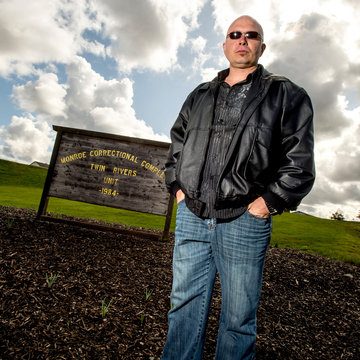Articles
Featured articles
- The Truth About The Pre-Sentence Investigation Report (PSI/PSR)
- What's New with the Second Chance Act?
- BOP Furloughs-A Federal Inmate’s Legalized Escape-For a Week-end!
- The Second Chance Act-Inmates Are Now Receiving More Halfway House Time and Home Detention!
- Federal Prison Overcrowding—Costs, Reasons, and Alternatives!
- The Bureau of Prison's Compassionate Release Program-Do You Qualify?
- Criminal Records Removal Service and More-Get Rid of that Negative Information
- New Two Level Decrease in Drug Sentencing Levels Reduces Time in Federal Prison
- The RDAP Drug Program and the Presentence Investigation Interview-Do You Qualify for Admission?
- Surviving Federal Prison-A Woman's Search For Help!


Marian Morgan's Big Mistake: Not taking a plea
Written by MICHAEL POLLICK
Published: Tuesday, May 1, 2012 at 1:00 a.m.
Marian Morgan's 35-year sentence for orchestrating a multimillion-dollar fraud dramatically concluded a trio of boom-era Ponzi schemes that began in Sarasota during a time of financial excess and avarice and ended with lengthy prison terms.
But while the other two local Ponzi scheme perpetrators—Arthur Nadel and Beau Diamond—stole far more than Morgan and had many more victims, they received lesser sentences.
Morgan's sentence was more than twice as long, in fact, as the terms Nadel or Diamond received. Morgan and her husband, John, conned $28 million from 87 victims, prosecutors said. Nadel, by contrast, took an estimated $162 million from more than 400 investors.
Morgan's sentence, handed down Friday by Federal Judge Susan Bucklew, also is longer than many other, higher-profile Ponzi perpetrators have received.
The difference, according to sentencing expert and consultant Michael Frantz, is that Morgan fought federal prosecutors, refused to accept responsibility, failed to take a plea deal, and did not cooperate either with investigators or the judge who controlled her fate.
"Twenty-eight million, believe it or not, is not a huge amount nowadays," Frantz said of the amount stolen. "The reason she got the 35 years, one of the reasons at least, is that she took it to trial."
Frantz said some of his clients convicted of skimming off similar amounts have been given much lighter sentences.
"I have clients that have done over $20 million and they got six or seven years," said Frantz, founder of Jail Time Consulting, in Seminole. "Going to trial meant not accepting responsibility."
That Morgan might have lied on the witness stand, under oath, likely did not help her in the eyes of the judge, either.
During her trial last September, Morgan insisted that investors' money -- at least $45 million of it -- was safe in Europe.
Judge Bucklew did not buy it. Instead, she considered those statements to be obstruction of justice.
"The defendant cannot lie," said Stephen Crawford, a Tampa defense attorney who was once a federal and state prosecutor. "If it is clear to the judge that they have lied, then your punishment is enhanced."
By contrast, cooperating and taking responsibility can lighten a potentially long sentence.
Consider Marian Morgan's partner in crime, her husband, John. He faced the identical set of 22 felony counts as his wife. But after he agreed to plead to a pair of those counts -- conspiring to commit wire fraud and money laundering -- Judge Bucklew gave him a term of 10 years in jail, one third that of his more combative wife.
John Morgan also signed a document that stated the couple's Morgan European Holdings was a fraud, and detailed their crimes. Perhaps even more importantly, he agreed to cooperate with the government.
That plea means he will likely leave a federal prison camp in southern Georgia in May 2018, just six years after his wife -- who turns 58 in September -- starts what could amount to a life sentence.
Allowing for the standard Bureau of Prisons reduction of 12.8 percent for good behavior, Marian Morgan's sentence would still be over 30 years -- nearly two and a half years less when time she served in the Pinellas County Jail while awaiting trial is factored in.
Even then, in 2040, she would be 85 years old.
Morgan's case, like that of the other Sarasota Ponzi schemers, was overshadowed by the crimes of former NASDAQ chief Bernard "Bernie" Madoff.
He pleaded guilty in March 2009 to 11 federal felonies surrounding taking almost $65 billion, including fabricated gains, from clients' accounts. He was sentenced to 150 years in prison that June.
In Fort Lauderdale, meanwhile, lawyer Scott W. Rothstein stole $1.2 billion in a long-running investment fraud.
He pleaded guilty to five federal crimes in January 2010 and was sentenced to 50 years in prison -- though federal prosecutors last year said they would seek a reduction based on his cooperation.
"She got $20 million and was sentenced to 30-plus years," Frantz said. "Scott Rothstein, here in Fort Lauderdale, took $1.2 billion and the guy gets 50 years and is likely to get that sentenced reduced," Frantz said.
Each of the other two convicted Sarasota Ponzi perpetrators fared relatively better than Morgan, too.
Nadel faced trial on 15 felony counts, but pleaded guilty to them all before trial. He was sentenced to 14 years in prison, when he was 77. He died last month in federal prison in Butner, N.C., at the age of 79.
Diamond pleaded innocent and went to trial for defrauding investors through his Diamond Ventures LLC. But he elected not to testify. After a jury found him guilty on all counts, he received 15 years -- in the same Tampa courthouse where Marian Morgan was tried and sentenced.
Diamond is now scheduled for release in March 2023. He is currently looking for a girlfriend through online sites where prisoners seek penpals.
"The reality is, there will often be significant disparity in terms of the length of the sentence, if you try to line it up with the amount of money taken," said Douglas A. Berman, an Ohio State University law professor who writes a blog about federal sentencing policies and trends.
"That Ms. Morgan went to trial and the judge came to the conclusion that she was not only not remorseful but still trying to cover her tracks, that surely played a role."
This story appeared in print on page D1
2015 HeraldTribune.com

Tigani's term to start Monday in N.Y.
Written by MAUREEN MILFORD and SEAN O'SULLIVAN
The News Journal
US agency picks Brooklyn center over South Jersey site urged by judge.
WILMINGTON — Convicted liquor executive Christopher J. Tigani has been ordered to report Monday to a high-rise detention center in Brooklyn, N.Y., rather than the rural facility in South Jersey that was recommended by the federal judge who handed down his two-year sentence.
Tigani, who pleaded guilty last year to four felonies involving campaign-finance fraud and tax evasion, had wanted to go to the Federal Correctional Institution in Fairton, N.J., a medium-security prison near Bridgeton that has an adjacent camp for minimum-security offenders. U.S. Chief District Judge Gregory M. Sleet had recommended Tigani serve his time at Fairton.
But the Federal Bureau of Prisons, which has the sole authority to designate where offenders serve their time, said Tigani will report to the Metropolitan Detention Center Brooklyn. The urban prison houses 2,400 prisoners at all security levels, according to Traci Billingsley, spokeswoman for the Bureau of Prisons.
By contrast, the federal prison in Fairton, located in rural South Jersey within an hour's drive of Wilmington, houses 1,450 in the main prison and 120 in the nearby camp, Billingsley said.
According to Larry Levine, founder of Wall Street Prison Consultants in Los Angeles, who served at 11 different institutions during his 10-year sentence for narcotics trafficking, securities fraud, possession of machine guns and racketeering, the Brooklyn detention center is primarily a federal jail for pre-trial inmates, but there is a small group of offenders called the "work cadre." Levine, who served time in a detention center, said the work cadre primarily performs maintenance for the prison, including food service and paperwork.
"The accommodations are going to suck, basically," Levine said. "It's not a camp setting, and he's not going to have the freedom of a camp. He really should be at a minimum-security camp."
Michael Frantz, director of Jail Time Consulting in Seminole, Fla., said he is confident that Tigani will be transferred to a minimum-security facility within the next two to four months, provided there is not a population problem.
Billingsley, of the bureau of prisons, said prisoners are "absolutely" transferred regularly.
"As long as my children are OK, I will be fine no matter where I am," Tigani said via email. "My family and friends have been incredibly supportive. It's now time to move forward. I am anxious to begin serving my debt to society so I can come back to Delaware as quickly as possible."
Lawyer Virginia Gibson said in a statement that Tigani "accepts the sentence of the court, and the Bureau of Prisons' designation of his place of confinement." She said Tigani is grateful that Sleet initially recommended Fairton.
"He deeply regrets that he will not be actively participating in the lives of his two young sons for the next two years," Gibson said.
Tigani also regrets the difficulties his family and colleagues have endured and his inability to continue to build his new liquor distribution company, World Class Wholesale, while in prison, Gibson said.
Gibson had petitioned Sleet at the end of March to "reaffirm" his recommendation that Tigani serve his sentence at Fairton.
She also asked Sleet to grant a two-week delay in Tigani's date to report to prison so he could appeal his designation to MDC Brooklyn.
"It is fundamentally important to Mr. Tigani and his sons that he is close to his young family so that they can visit during his two-year confinement. Designation to Brooklyn will make that a very difficult thing," Gibson wrote in a letter to Sleet.
Sleet, however, in a one-page order issued Thursday, denied both the request to reaffirm his recommendation of Fairton and the request by Tigani for additional time to report. In a footnote, Sleet noted that federal judges "are without power to mandate where a defendant serves his or her sentence."
The Federal Bureau of Prisons "has the sole authority in determining where an offender will be designated," Sleet wrote. That is due to logistical, safety and security concerns, according to Sleet and other federal judges during comments in other proceedings.
"The court made a recommendation that the defendant serve his sentence at FCI Fairton, and is without power to do anything further," Sleet wrote.
Tigani, 41, admitted last year to illegally channeling campaign contributions through his family liquor business, N.K.S. Distributors Inc., to numerous federal and state political campaigns, including that of then-presidential candidate Joe Biden in 2007. He pleaded guilty in June to two federal felony violations of campaign-finance laws and two counts of tax fraud and was sentenced to two years in prison by Sleet on March 6.
Contact Maureen Milford at 324-2881 or mmilford@delawareonline.com.
Contact Sean O'Sullivan at 324-2777 or sosullivan@delawareonline.com.

Making Crime Pay
Written by MATT RICHTEL
APRIL 7, 2012
LARRY LEVINE, heavyset and bald, runs a thriving business out of a gated apartment complex in Ventura County, Calif., a setting that’s not at all bad for a home office considering some of the prison cells he’s lived in. But as he drops into his plush beige and white sectional couch to talk business, something is nagging at him.
The trouble is the new competition. All these guys are setting up shop, marketing themselves on the Internet, claiming they know the ropes and cutting into his market share.
To Mr. Levine, they’re a bunch of poseurs, with no street cred. After all, they’ve barely spent any time behind bars.
“Look at my résumé, I’ve got 10 years: high-security, medium, low,” said Mr. Levine, 50, who was in jail until 2007 on narcotics trafficking, counterfeiting and weapons charges. “These guys go in for a year and a half, maybe two. I’ve got more experience than all the rest of these guys combined.”
Mr. Levine is a prison consultant. The business — which entails advising people who are facing jail time on how to prepare for life on the inside, deal with medical issues, transfer to other prisons and even reduce their sentences — has been around for decades. It enjoys a burst of publicity when a boldface name like Bernie Madoff or Michael Vick hires a consultant.
But the business is changing. Behind the scenes, the profession is attracting a new crop of ex-cons who believe they can put their experience to work, rather than have it burden them in a tough job market.
And more competition means rising tempers and flying accusations. Some prison consultants say that others are so lacking in expertise that their businesses are practically criminal enterprises. Rancor among thieves.
“This industry’s exploding,” mourned Mr. Levine, who operates two Web sites, American Prison Consultants and Wall Street Prison Consultants. He reached to a nearby coffee table and picked up a piece of paper listing the names of several dozen competitors and the length of their prison sentences. This is not a rap sheet, it’s market research.
The business, he said, is “becoming saturated with people who don’t know what they’re doing.”
He and his competitors (some of whom find his prison time equally unimpressive) walk a fine marketing line, bragging about an extensive criminal record to attract customers. That can make it tough for potential clients to choose: How much incarceration time is enough? What kind of experience is right for the job — maximum security, solitary confinement, a knife fight?
To hear the consultants talk, most competitors aren’t worth the time of day.
“Let’s put it this way: If I was in prison, I wouldn’t share a chow table with Larry Levine,” said William Mulholland, who founded the Real Prison Consultant in 2010. He and Mr. Levine have had words about Mr. Mulholland directing people to free online resources about the prison system.
He also said Mr. Levine routinely criticizes lawyers as money pits, which Mr. Mullholland said only alienates lawyers who could be crucial allies for the fledgling industry. (Mr. Levine said Mr. Mulholland is afraid to criticize lawyers.)
"He’s like a used-car salesman,” Mr. Mulholland said of Mr. Levine.
Mr. Mulholland’s Web site identifies him as the “#1 Qualified Federal/State Prison Consultant in the United States.” It adds: “I Challenge any other Consultants as to their ‘So Called Certified Credentials.’ ”
He offers advice free, he said, so he can build credibility. There’s another reason: He’s not allowed to charge for his services. That’s because he remains under supervisory release and faces limitations on interacting with known felons, who could be among his clientele. He spent 21 years in prison for violent crimes; he’s been in gunfights, has beaten people with bats and sold drugs.
He said he is building his brand for when he can begin charging in June 2013. He also has a Twitter feed and a YouTube video. The name of his blog: The God of Time.
The Internet and social media certainly have given the business a boost, and the consultants are go-to guests on cable shows whenever a high-profile personality is indicted. The field includes Felony Prison Consultants, Executive Prison Consulting, the Real Prison Consultant, Faceless Prison Consultants, the Prison Coach, the Prison Doctor and others, around three dozen in all.
Their prices range widely; some charge by the hour, some by the service, from a few hundred dollars to tens of thousands per client, depending partly on the consultant’s experience and work required. It’s not clear whether the number of customers is growing or just the number of people hanging out a shingle is.
The consultants’ Web sites promote a long list of services, including helping people petition to be sent to a jail nearer to home, getting them into a drug-treatment program that can reduce a sentence or transitioning them to a halfway house. Many people hire consultants simply because they’re scared and want to know what to expect. The consultants teach prison etiquette.
For example? “Never walk across a wet floor,” Mr. Mulholland advised, saying you might mess up the work of the prisoner manning the mop. And then he might kill you.
A Web site is where Vickie Skidmore, 58, stumbled onto Michael Frantz, an ex-convict who runs Jail Time Consulting. Ms. Skidmore was seeking help getting a transfer and some medical assistance for her son, Marcus Rosenberger, 36, sentenced recently to 33 months on several counts of wire fraud related to real estate transactions in Florida.
She talked to several consultants and settled on Mr. Frantz, she said, because he listened to her, sounded intelligent and lived in her home state. And he’d done time.
“I asked lawyers to help me, but they don’t understand what goes on in the inside,” she said.
Some consultants rely on testimonials. On its Web site, Executive Prison Consultants gets a shout-out from Tim Donaghy, a former National Basketball Association referee who pleaded guilty to charges related to betting on games. The defrocked referee is quoted as saying, “The professionals at EPC get results!”
The site attracted a potential new client named Jeff, a Missouri resident who last year pleaded guilty to wire fraud and, in a few weeks, will enter a federal prison camp in Kansas City for a one-year sentence. Jeff, who asked that his last name not be used because he did not want to widely publicize his conviction, said that he went looking for a consultant because, “I’m just interested in spending the least amount of time in prison as possible.”
Advertisement
Continue reading the main story
He checked out a few other Web sites and corresponded with a competitor by e-mail, he said, but he was dismayed when the competitor responded with form-letter responses, including one that referred to helping Jeff and “his wife.” Jeff is not married.
Do the consultants make a difference?
They certainly can, according to people who work in the criminal justice system. A sharp consultant, they say, can help with complicated paperwork, in much the same way that a college consultant can help a family navigate complicated financial aid forms. That said, people can also do the work themselves.
Chris Burke, a spokesman for the Federal Bureau of Prisons, declined to comment on the industry.
Not all prison consultants are ex-cons. Some worked as prison guards or employ former prison officials. Others are lawyers. Their clean record is more of an asset than being able to brag about time behind bars, they say.
“You think a warden is going to change a decision based on advice from a former resident? That is just not going to happen,” said Joel Sickler, who runs Justice Advocacy Group and has been a prison consultant for 30 years and, before that, a prison guard. He said his unblemished past would go over better with prison officials when he’s trying to petition for, say, a client transfer.
The ex-convicts in the business see things differently, arguing that relevant experience matters.
Mr. Frantz, of Jail Time Consulting, prefers this metaphor: “If you had to have someone take your appendix out, would you go to a guy that runs a gas station?”
Mr. Frantz, 65, earned his nearly 36 months of experience in a federal prison camp in Miami after pleading guilty to tax evasion and Medicare-fraud charges.
He hired a prison consultant, and the experience led to an epiphany: crime could indeed pay. He decided to become a consultant himself.
Besides, his options were limited. “I knew when I got out, I’d be 62 years old, a convicted felon,” he said. “Who the hell was going to hire me?”
While in prison, he spent time in the law library, learning about penal regulations. He wrote “Jail Time,” a book about what to expect in federal prison that he published in 2009, a year after he was released, and started Jail Time Consulting. It was promptly shut down by a judge, who suspended the operation until Mr. Frantz ended his supervisory release in 2011.
In this business, bad news is just another marketing opportunity. Mr. Frantz’s Web site now reads: “Jail Time — the book a United States District Judge doesn’t want you to read.”
Like other prison consultants, he questions his competitors’ business practices. Their rates, he says, can be outrageous.
“You want a transfer, I’ll charge you $625, for goodness sake,” he said. “Other people are charging $2,500. Come on!”
The business is unregulated, no license required. There is a Web site called the National Registry of Prison Consultants — “the authority on trust in the marketplace.”
It was started last year by Steven Oberfest, the founder of the Prison Coach, who said he served 15 months in the ’90s after taking a plea deal for racketeering. (He said it was related to charges that his piano-moving company was involved in the theft and distribution of stolen grand pianos, accusations he denies.) He said the industry sorely needs self-regulation for it to be taken seriously.
“You can’t just have people popping into the industry,” he said. “Just because you’ve finished doing time, doesn’t mean you’re a better person.”
The registry has a list of the top 10 prison consultants, but lists only two, Mr. Oberfest and Mr. Levine, the consultant from Ventura County.
But Mr. Levine said he considered the registry to be “a hoax.”
“For me, my reputation and my experience is my badge of honor,” he said, not an affiliation with an industry group.
Mr. Levine said he thought the competition would thin out over time because the competitors lack marketing smarts. Besides, he argued, he has the criminal CV to back up the marketing.
